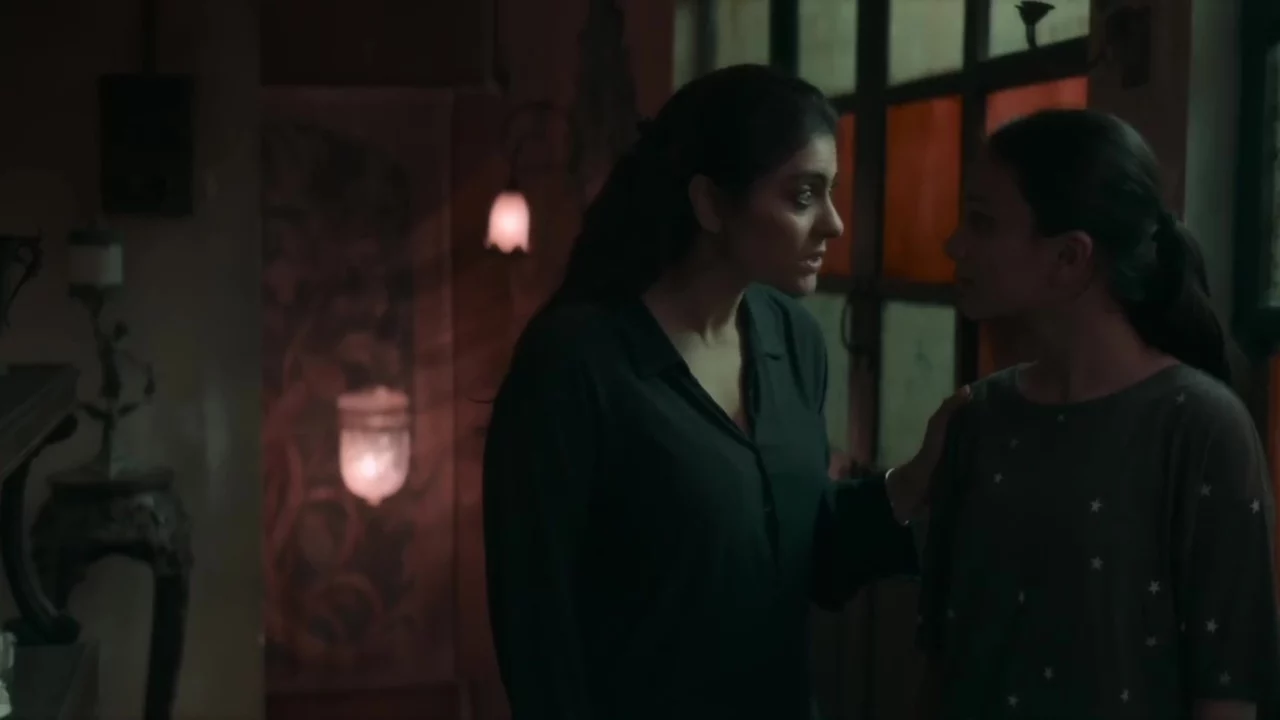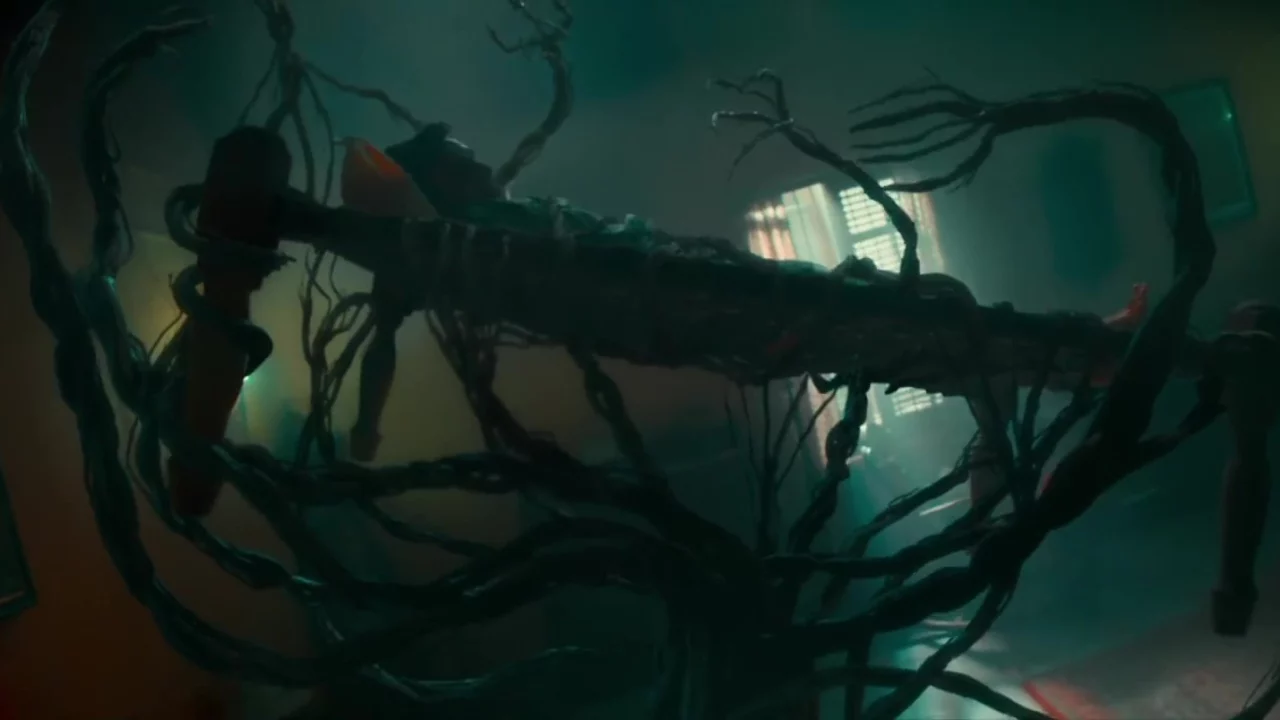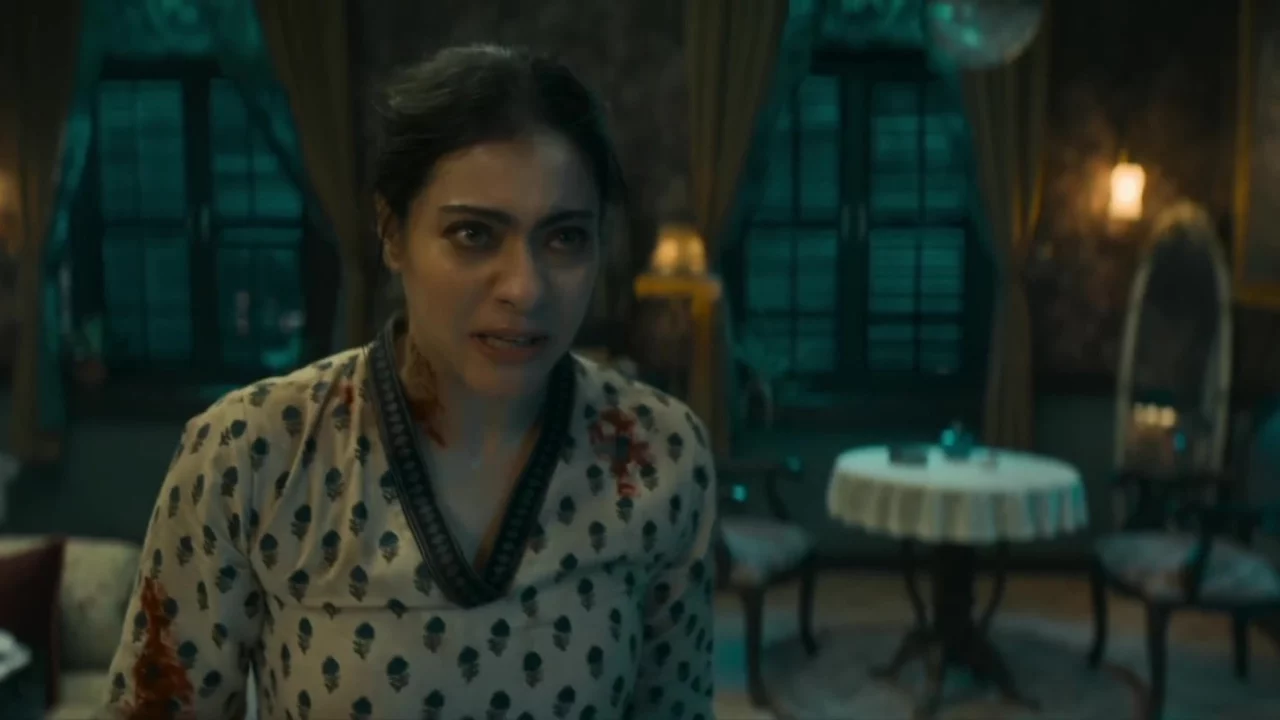Maa, the latest mythological horror thriller directed by Vishal Furia, marks a significant return for Bollywood’s beloved actress Kajol to the genre that demands both emotional depth and spine-chilling performance. Released on June 27, 2025, this supernatural drama brings together an impressive cast including Kajol in the lead role, supported by talented actors like Yaaneea Bharadwaj, Roopkatha Chakraborty, Surjyasikha Das, and Jitin Gulati. The film is produced under Ajay Devgn FFilms banner, adding another feather to the production house’s diverse portfolio.
Set against the backdrop of ancient Indian mythology blended with contemporary horror elements, Maa explores the powerful transformation of a mother who channels the fierce energy of Goddess Kali to protect her family from supernatural threats. Director Vishal Furia, known for his previous works in the horror genre including Chhorri and its sequel, attempts to create a unique cinematic experience that resonates with Indian cultural values.

Plot and Storyline
The narrative revolves around a compelling premise where maternal instincts meet divine intervention. The story follows a mother who undergoes a supernatural transformation, embodying the fierce avatar of Goddess Kali when faced with demonic forces that threaten her family’s safety. The plot intricately weaves together elements of fear, blood, betrayal, and the ultimate power of maternal love.
The film’s foundation rests on the concept of divine feminine power, showcasing how an ordinary woman can transcend human limitations when protecting her loved ones. While the basic premise holds promise and originality, the execution follows a somewhat predictable path that seasoned horror movie fans might see coming.

Cast Performance
Kajol’s performance stands as the film’s strongest pillar, delivering a powerhouse portrayal that showcases her versatility as an actress. Her transformation from a vulnerable mother to a fierce embodiment of divine power is convincing and emotionally engaging. I found her ability to capture the internal conflict of a woman torn between human vulnerabilities and supernatural strength particularly impressive.
The supporting cast provides adequate support to the narrative, though their performances vary in impact. A notable mention goes to R. Madhavan’s cameo appearance, which adds an unexpected layer to the storyline and provides a surprising twist that audiences won’t see coming.

Technical Aspects
Vishal Furia’s direction shows both ambition and limitation in equal measure. While his vision for blending mythology with horror is commendable, the execution occasionally falters due to budget constraints and technical limitations. The film’s visual effects, though adequate for the genre, lack the polish required to create truly convincing supernatural sequences.
The cinematography captures the eerie atmosphere effectively, using lighting and camera angles to build tension. The background score and sound design play crucial roles in maintaining the horror atmosphere, with traditional Indian instruments blending seamlessly with contemporary horror music elements.
What Works
The film’s greatest strength lies in its unique concept of merging maternal instincts with divine power, creating a narrative that feels both familiar and fresh to Indian audiences. Kajol’s stellar performance anchors the entire film, making even the weaker moments watchable through her compelling screen presence.
The climax episodes deserve special mention for their emotional intensity and visual impact. I particularly appreciated how the film successfully builds towards a satisfying conclusion that pays off the setup established throughout the narrative. The post-climax twist adds an unexpected dimension that leaves audiences with something to think about.
Areas for Improvement
Despite its strengths, Maa suffers from several weaknesses that prevent it from reaching its full potential. The screenplay’s conventional approach to horror tropes makes certain plot developments predictable, reducing the impact of potentially shocking moments.
The film’s pacing issues become apparent in the second act, where the narrative loses momentum and struggles to maintain audience engagement. The technical execution, while adequate, lacks the finesse required for a cinematic experience that could compete with international horror standards.
Critical Reception and Popular Reviews
Professional critics have shown mixed reactions to the film, with ratings varying across different platforms. The film currently holds a 6.4 rating on IMDb, indicating moderate reception from audiences. Several critics have awarded the film 3.5 stars, praising Vishal Furia’s ability to create solid twists and turns with a story that strikes a chord with the Indian audience.
However, some reviews point out that the film fails to fully captivate audiences due to the lack of innovative storytelling and conventional execution. Public reception has been more favorable, with audiences appreciating Kajol’s return to the horror genre and the film’s cultural authenticity.
Final Verdict
Maa represents an ambitious attempt to create a distinctively Indian horror experience that honors cultural traditions while delivering modern scares. While the film succeeds in several areas, particularly in Kajol’s commanding performance and its unique mythological approach to horror, it falls short of becoming the groundbreaking horror film it aspires to be.
The movie works best for audiences who appreciate culturally rooted horror stories and are willing to overlook technical limitations in favor of emotional authenticity. I believe Kajol’s fans and horror lovers looking for something different from the usual Bollywood offerings will find enough to appreciate, though the film’s conventional execution prevents it from achieving true excellence.
Despite its flaws, Maa offers a watchable horror experience that stands out in the current landscape of Indian cinema for its bold thematic choices and Kajol’s powerful central performance.
Rating: 3.5/5
